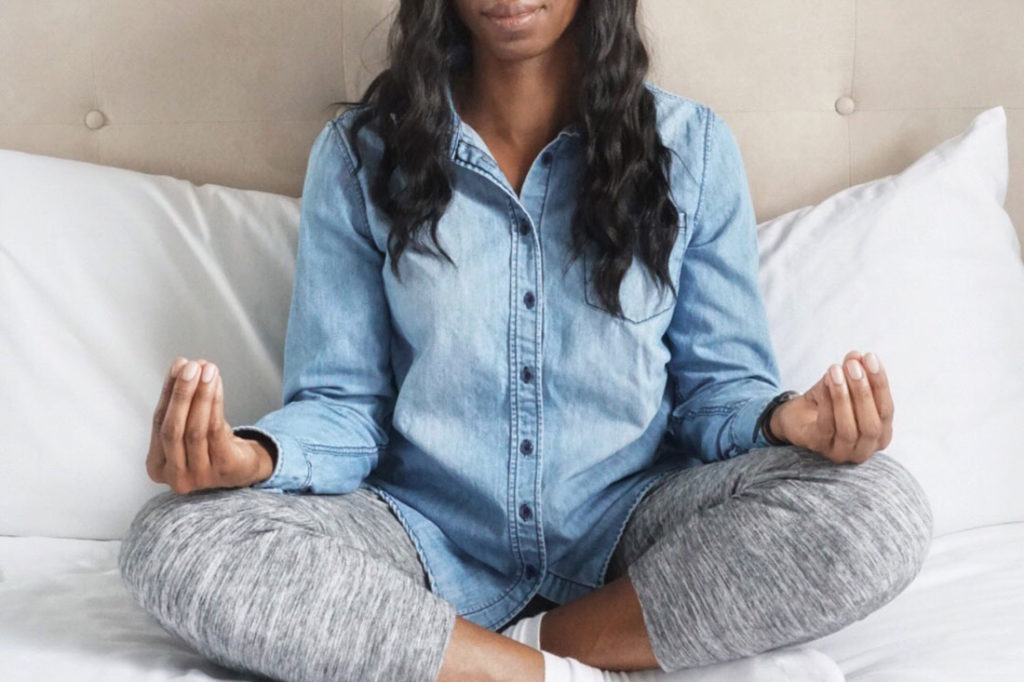Speaking at the American Psychological Association’s annual conference, Herbert Benson, MD, lauded the benefits of meditating once or twice per day for 10 to 20 minutes. That is certainly not a limit, and other mindful exercises can be worked into your morning or evening routine. For instance, simple breathing exercises lasting a few minutes or less may be used throughout your day. But for meditations lasting 10 minutes or more, it’s best to plan a daily routine. So when is the best time to meditate?
For starters, you want to choose a time when you can enjoy relative quiet. Beginners will especially benefit from an area free of distractions. Consider times of day you have a room if not the entire home to yourself. Distractions such as noise from TV or children playing can make learning meditation difficult. Similarly, don’t try to “squeeze in” a 20-minute meditation immediately prior to other obligations. Being concerned about missing an appointment can be more distracting than noise.
With these considerations in mind, let’s look at a few popular times of day to begin building your mindful, self-care routine.
Morning Meditation
If you typically wake up late and rush for work, break that habit first. For optimal performance and success, we recommend starting early with a morning routine. A morning meditation of five or 10 minutes is a great start in developing healthy morning habits. Morning meditations serve to focus the mind and relieve any anxiety we may feel in facing the day. Rather than feeling rushed, you can begin your day with calm and confidence. And if you start by waking up early, mornings can be one of the quietest, distraction free times of day.
Calm for Your Commute
You can’t meditate while driving, but it is a great time to practice related mindfulness. Don’t let that morning meditation go to waste by becoming stressed over a crowded bus or heavy traffic. This is where meditation and mindfulness apps come in handy. Apps such as Aura, Breethe, Calm, and Headspace provide audio tracks of relaxing music to keep you in a positive frame of mind on your commute. Better still, many of the best meditation apps offer educational tracks designed to both inform and uplift. Take a break from the news and other concerns outside of your control. Try inspiration instead.
Mindfulness for Your Workday
A light, five or 10 minute meditation can help you make the most of your lunch break. These few minutes will allow you to relieve the anxiety of a hectic morning and focus better in the afternoon. If you work from home or have your own office, it’s easy to find solitude. But if you don’t have such privacy, there are other mindful habits you can build. For instance, a lunchtime walk provides both exercise and calm. And you don’t need to have access to a beautiful park or campus to take advantage. I took a daily walk for lunch even in a downtown setting simply by walking through a nearby neighborhood. It never failed to refresh and focus me for the afternoon ahead.
Afterwork or Evening Meditation
For most people, nighttime serves as the best time for longer meditations of 20 minutes or more. You can free up time by simply turning off the television and getting away from social media for the night. As part of your evening routine, these deeper meditations serve multiple purposes. First, they provide all the mental and physiological benefits of meditation such as increased focus and mindfulness, reduced tension and heart rate, and an overall sense of calm, happiness, and well-being. But as part of an overall wind down before bed, they also help prepare your body and mind for a best night’s sleep.
Meditation Apps to Build Mindful Habits
Meditation apps for your tablet or mobile device help you build daily, mindful health habits. They assist in scheduling both the time of your meditations and their duration. The best meditation apps including Aura, Breethe, Calm, and Headspace allow you to designate a specific time for your meditations. And since the guided meditations are of a set duration, you don’t have to worry about watching the clock. Typical morning meditations last five to 10 minutes while deeper, evening meditations typically run 20 to 60 minutes. They even have tracks to help you learn meditation basics such as getting comfortable, breathing deeply and fully, and relaxing your body.
Plus, meditation apps provide other features such as driving tracks, breathing exercises, and even fitness routines such as yoga and cardio. Sleep meditations are especially popular. These range from calming music to sleep stories, each designed to help you fall asleep more quickly and fully.
Photo by @CassMcD/Twenty20











